Not a week goes by without me reading somebody paraphrasing my blatherings and getting it all wrong. Last week I read:
I'm not sure if I agree with Eddie Campbell's assertion that we should consider illustration art to be a type of comics (or graphic novel or whatever you want to call the medium).
I can't even unravel that back to what I conceivably could have written.
This week it's this:
"Eddie Campbell voices in on the not-so-contentious debate about what to call graphic fiction. Is it a genre? A format? In addition to a very generalized journalist bashing (seriously, there are a few of us who aren’t nitwits!) Campbell sides with form. Personally, I just call it a medium. Seems simple enough."
Since I reject the notion that there is a great big shapeless field of activity that can all be gathered under the one name (here 'graphic fiction', a term I have never once used) then I could hardly have said or meant that, could I?
I always choose my words and cut my phrases carefully. I guess most people just don't READ with a similar care.
Anyone who HAS been reading with care will know that I have no interest in naming anybody's medium and I just stand on the sidelines and illuminate assorted moments of verbal befuddlement, just for the sport of it, and also I suppose in some vague hope that those who write nonsense will start to think more clearly.
nevertheless if you insist on paraphrasing me, a glossary:
comics: Since McCloud defined this term as being exactly equivalent to 'sequential art' through all of time, it behooves anybody who disagrees, such as I do, to stop using the term.
sequential art: Not all 'comics' is sequential art and not all sequential art is 'comics'. Saying that "all sequential art is comics" is like saying the world is a suburb of Brooklyn; and saying it with a Brooklyn accent. (update 17 nov)
comic book: One of the useful words, because everybody knows what it means. American style comic books. They know what it looks like and can point to industry sales statistics. Comic books are clearly objects that exist in time and space. Since the things that happen in comic books follow a set of rules and involve activities that don't happen elsewhere, one can use the term to indicate a genre of popular fiction. Comic books can be formatted in different ways, thus a 200 page comic book is still a comic book. But there's a lot of stuff that doesn't fit here. e.g. Posy Simmonds, Maus, Shaun Tan's the Arrival to name but three just to establish the picture. When I say 'comic book,' i'm not thinking about them (or myself most of the time, though i ocasionally moonlight in comicbookland).
genre: "A genre is a loose set of criteria for a category of composition. Genres are formed by sets of conventions, and many works cross into multiple genres by way of borrowing and recombining these conventions. The scope of the word "genre" is sometimes confined to art and culture, particularly literature, but it has a long history in rhetoric as well. In genre studies the concept of genre is not compared to originality. Rather, all works are recognized as either reflecting on or participating in the conventions of genre."
comic book culture: that body of knowledge applicable to the collecting of comic books and other artefacts of the cuture surrounding the subject, which ordinary people don't possess and have no interest in possessing. eg comic book culture includes but is certainly not limited to: knowing what an inker does, why an issue of Spiderman drawn by McFarlane is worth more than one drawn by Mooney, that a figurine is not a doll, and being able to make an educated guess as to when precisely 'the golden age' ended. (some commenters have understood me to imply a juvenile aspect to 'comic book culture', which has never been so).
Cartoons, newpaper: The newpapers include and have included an array of different types of cartoon, including editorial cartoon, strip cartoon, panel cartoon, etc. These form a completely different medium from the comic books, even when sequential pictures are involved (you can disagree with this, but I am not the only one to say it, so while disagreeing you can acknowlege a contrary school of thought, as I have just done).
gag cartoon; The one-liners in the new Yorker etc.
manga: A Japanese word used long before it came specifically to mean comic strips or books in that country. Now it means Japanese style comic books whatever the country, i.e. a style.
Bande-dessinnee: It's French. so, whatever they say. But it's always amusing to see them mystified by our insane semantic confusions.
caricature: the art of mocking by drawing a person's likeness. This was invented in the 1500s but one can retroactively see the same thing in cultures with a strong tradition of portraiture such as ancient Rome. However, it's misleading to use the term in relation to the Bayeux tapestry (where personages are only emblematically represented), as I have seen twice in the last months, including in Bryan Talbot's book.
graphic novel: variously and confusingly used to indicate 1)all comic books, 2)a specific format of comic books, 3)indeed the physical object itself (as opposed to the work it contains), 4) what would in prose be a novel but illustrated as a comic, 5) a new form of pictorial literature. Since it is not much use for the purposes of communication, my feeling is that it's better to ditch the term altogether though of course it's much too late for that. However as an overview, I feel that posterity will come to see it as representative of a certain ambition to make something grand out of the elements of the strip cartoon. Its failure will be due to its inability to escape out of comic book culture. Will Eisner's personal story illustrates this struggle as a series of steps forward and backward. He 'coined the term' (don't argue in this small space) and pitched his first 'graphic novel' with a book publisher, his second was serialized in the Kitchen Spirit comic mag, which was a step back. When Kitchen went bust he landed at DC. Finally he went to some trouble to remove all his books from comic book publisher DC over to book publisher Norton, which was a step forward, even if it ultimately doesn't mean or achieve anything.
graphic other (eg graphic memoir etc): this seems to me like folk playing cards unaware that the boat has been taking on water for some time, but whatever, everybody to his own.
format : 1. the shape and size of a book as determined by the number of times the original sheet has been folded to form the leaves. Compare duodecimo, folio (def. 2), octavo, quarto. 2. the general physical appearance of a book, magazine, or newspaper, such as the typeface, binding, quality of paper, margins, etc.
'trade paperback' is an example of a format, being an oversized paperback that originated from the trade practice of putting a dummy cover around the innards of the hardcover to show customers what the upcoming paperback (which traditionally followed the hardcover) would look like. Anybody who says 'trade paperback' holds meaning other than oversized paperback (as I know many do) runs the risk of sounding like a complete twat.
form: Method of arrangement or manner of coordinating elements in literary or musical composition or in organized discourse: presented my ideas in outline form; a treatise in the form of a dialogue.
A particular type or example of such arrangement: The essay is a literary form. (as are novel, short story, etc.). (note that in literature the novel is a form but in illiterature the graphic novel is not a form but a format. I'm just pointing this out, as the Library Director should have done a few posts back, but I'm sure everybody has already taken it into account.)
illustration: a) any figurative art is often described as illustrative from the fine art point of view, even when the work does not relate to something outside of itself as in b . b) pictures drawn or painted to accompany text, whether fiction or non-fiction. Comic books can be described as an illustrated text. Even if there are no words.
authorial illustration: A concept of renewal and revitalisation in the field of illustration, in which the illustrator is applauded for creating his own projects. Edward Gorey, Ralph Steadman and Chris Ware among others are held up as successful examples (Note Ware's presence. I like this because it is one area is which so-called 'graphic novel' is perceived as a discipline outside and unrelated to comic book culture. Here it is seen as just another type of illustrated book.)
definition: precisely fixes limits and boundaries. it's usually about excluding something, throwing out the riffraff.
The lowbrow colonisation of culture: Seeing ourselves as so important that everything in history was just a preparation for our magnificence. Thus the Sistine chapel ceiling and the Bayeux tapestry are 'comics'. (not) (I had to add that before i get misrepresented by the guy who just read this at eighty miles an hour)
medium: there are several mediums mentioned above. If you say that I have suggested that we should call the medium this or that, which medium exactly? And don't presume I'm in the one you're talking about. Well, actually you can say what you like, but don't attribute it to me.
Labels: comics crit 1
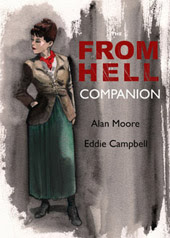
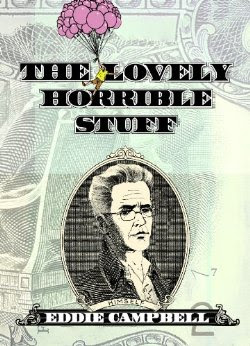

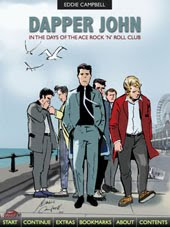
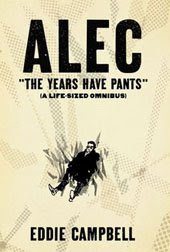
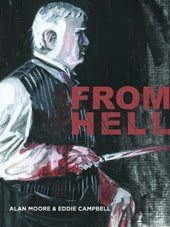
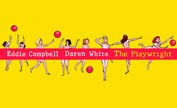
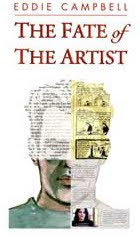
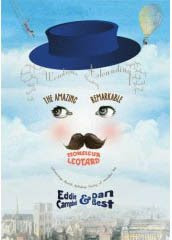
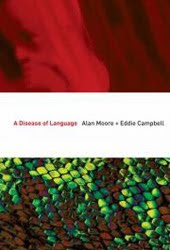
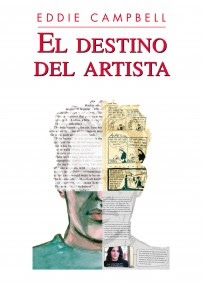
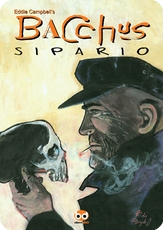
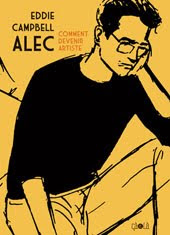

17 Comments:
I can only hope this glossary will prevent people from going down the shameful path I know all too well.
More posts about The Mammy's underpants, I think.
Speaking of "comic books": The Revolt of the Comic Books (original article here, but doesn't have the excellent cover you get at the first link), about the stirrings of political protest in mainstream USAnian comic books in the current climate.
But what has all of this got to do with Batman?
Mick
I suppose I haven't convinced you that journalists aren't nitwits. To say my piece, I understand where you're coming from, but all I wanted to do was point readers who might wonder over the various terminology used related to [vague encompassing term re: comics] to your site for some added wisdom from an experienced veteran of the industry.
Sorry to put you off so. I do enjoy your musings, and I'll try to respond to them with more clarity in the future.
One of the useful words, because everybody knows what it means. American style comic books. ... But there's a lot of stuff that doesn't fit here. e.g. Posy Simmonds, Maus, Shaun Tan's the Arrival to name but three just to establish the picture
I've seen Maus called a comic book a lot of times, so it's not true that "everybody knows what it means" if by that you mean that everybody would agree with what you wrote above.
SF
And let's not forget the lovely "fumetti"!
The Italians do not seem very much into these (if I am to judge by the ridiculous amount of fumetti I see in the main bookshops here in Rome) despite having some great national authors, but I do find the word itself (for the speech balloon that look like smoke) brilliant.
I just left a lengthy response to this post (and to Campbell's view of related matters in general) on my own blog, if anyone's interested:
http://stephenfrug.blogspot.com/2007/11/of-eddie-campbell-useful-distinctions.html
SF
A small, pedantic point:
Mustn't the plural of medium be media?
indeed it should, but we are forced to mutilate the language for clarity, that is , most reading this will associate 'media' withe the reporting agencies of tv, radio, newspapers , magazines: 'THE media'. thus I think that one will change.
"Beware, however, when using media and medium. Consensus for standard usage in formal writing and, indeed, anything outside of the mass communication and advertising fields, is this: media is the standard plural--media as singular and medias as plural are incorrect. In formal writing, such as technical reporting, use media as a plural noun and medium as a singular noun. Sometimes the English plural mediums is used, as in "Technical report writing is one of the important mediums of communication." It is sometimes used to refer to materials of artistic expression and to the substance in which organisms grow ("We cultured the biopsy in several different mediums."), but it should not be used instead of media."
Stephen,
the world thinks comic books are about superheroes and so do I.
everything clear on that one.
Spiegelman would probably describe Maus as 'comic book,' but his concept of comic book predates 'comic book culture,' and he's thinking of Kurtzman's Mad. That postion is quaintly marginal and we love hm for it..
your intellectually acute idea that everything is a great big plate of soup is intriguing. I'll have two serves.
with croutons
as for this highbrow/lowbrow dichotomy... can't argue with you. Seems to be a political angle under your beef. A socialist agenda. You still think the rich people have kept education and the cultural wealth of the world to themselves perhaps.
a quibble however...
"lowbrow and highbrow culture (he uses these terms;"
name one place where I have used the word 'highbrow'
The world thinks comic books are about superheroes and so do I.
The world is changing its mind -- and I think that's a good thing, since, well, Maus is a comic but not about superheroes. And I, personally, would say the same about Alec. And a whole lot of other works.
Why would it be a bad thing if people came to see that comic books -- or, as I (and many others) prefer, "comics" -- as simply a medium, which could be about anything?
as for this highbrow/lowbrow dichotomy... can't argue with you. Seems to be a political angle under your beef. A socialist agenda. You still think the rich people have kept education and the cultural wealth of the world to themselves perhaps
I won't deny leftist leanings, although I don't know if I'd call myself a "socialist". But what's at stake here are cultural politics -- not quite the same thing. I do think that the whole "brow" discourse -- and what it springs from -- is a negative force. I'm hardly unusual in this -- the high culture-low culture split, so dominant for most of the 20th Century, has been increasingly abandoned, for, I think, good reasons.
name one place where I have used the word 'highbrow'
You're right: my mistake.
But I do think that highbrow goes hand in hand with lowbrow (historically, as the terms have been used, they certainly were introduced and used as a pair (or, starting in the early 1950's, part of a trio with "middlebrow"). So I think that using the term "lowbrow" buys into the scheme as its been historically used (unless one takes care to articulate another meaning, and I don't see having you done that).
But I shouldn't have said you use the term; I corrected the post.
"illiterature"
uh-oh.
Stephen
I used 'lowbrow' entirely in a mood of mockery. Replace it with 'dumbassed' if you want it to be politically neutral. 'The dumbassed colonisation of culture'.
"Why would it be a bad thing if people came to see that comic books -- or, as I (and many others) prefer, "comics" -- as simply a medium, which could be about anything?"
abstract, and very idealistic, but I've been onto this shit since the early seventies. It aint going to happen, and in fact I have written at length about how I see the situation actually going the other way, becoming more conservative. the world is not changing its mind. it and Hollywood have embraced the superhero.
"Maus is a comic "
you know,just to be a pain in the ass I think I'll go back to a hundred years ago . Comic is an adjective. a comic what?
I used 'lowbrow' entirely in a mood of mockery. Replace it with 'dumbassed' if you want it to be politically neutral. 'The dumbassed colonisation of culture'.
The problem is that "lowbrow" has a meaning which is reasonably clear -- albeit far more obscure these days than it was fifty years ago, what with the changing nature of culture. But still, one can talk about "lowbrow" and be reasonably communicative.
Where as "dumbass" is simply in the eye of the beholder: you think the culture is being colonized by the dumbass, which gives me some very vague sense of what you mean, but it's not nearly as good a term.
Personally, I think that trying to dismiss large fractions of the culture by some quick categorization -- its medium, its genre, its "brow" level, what Harold Bloom thinks of it, or whatever -- is both silly and inaccurate, and ultimately a negative thing to do. I think that works -- any work -- have to be evaluated on their merits, or not at all.
abstract, and very idealistic, but I've been onto this shit since the early seventies. It aint going to happen, and in fact I have written at length about how I see the situation actually going the other way, becoming more conservative. the world is not changing its mind...
I see in this the symptom of many early pioneers of cultural change: an inability to recognize change when it comes, because it is always slower than it ought to be. I think the world is changing its mind.
(I suspect that this is simply a case where we disagree about the facts of the matter... I think I'm right, but I'm not sure what I could do to convince you (quite possibly nothing.))
(True, Hollywood has embraced superheroes... but that actually lessens their association with comics (to use my term), since they are now clearly a genre separate from any particular medium. You can now spend a lot of time with superhero stories and never get near a comic book; you can now read a lot of comic books and never get near a superhero.)
"Maus is a comic "
you know,just to be a pain in the ass I think I'll go back to a hundred years ago . Comic is an adjective. a comic what?
But you give away the game with the whole "go back to a hundred years ago" bit. Comic was an adjective. The language has changed. (Granted, some speakers haven't changed... but the answer to that is to keep using the terms in their present day sense, clarifying where necessary.) "Comic" was an adjective; now it is also a noun, whose meaning is only historically related to its adjective meaning. (This is totally banal in language: words take on new meanings, even contradictory ones, all the time.)
Demanding "a comic what" is like saying: 'compute' is a verb, what is this computing you are doing? Sure, a hundred years ago that might have been a reasonable question. Now a computer is a noun, a thing. The language -- and the world -- have changed.
SF
"Demanding "a comic what" is like saying: 'compute' is a verb, "
compute IS a verb. you've lost me.
but once again... "You must toe the Party line, Campbell."
No, my friend, I won't.
Post a Comment
Subscribe to Post Comments [Atom]
<< Home